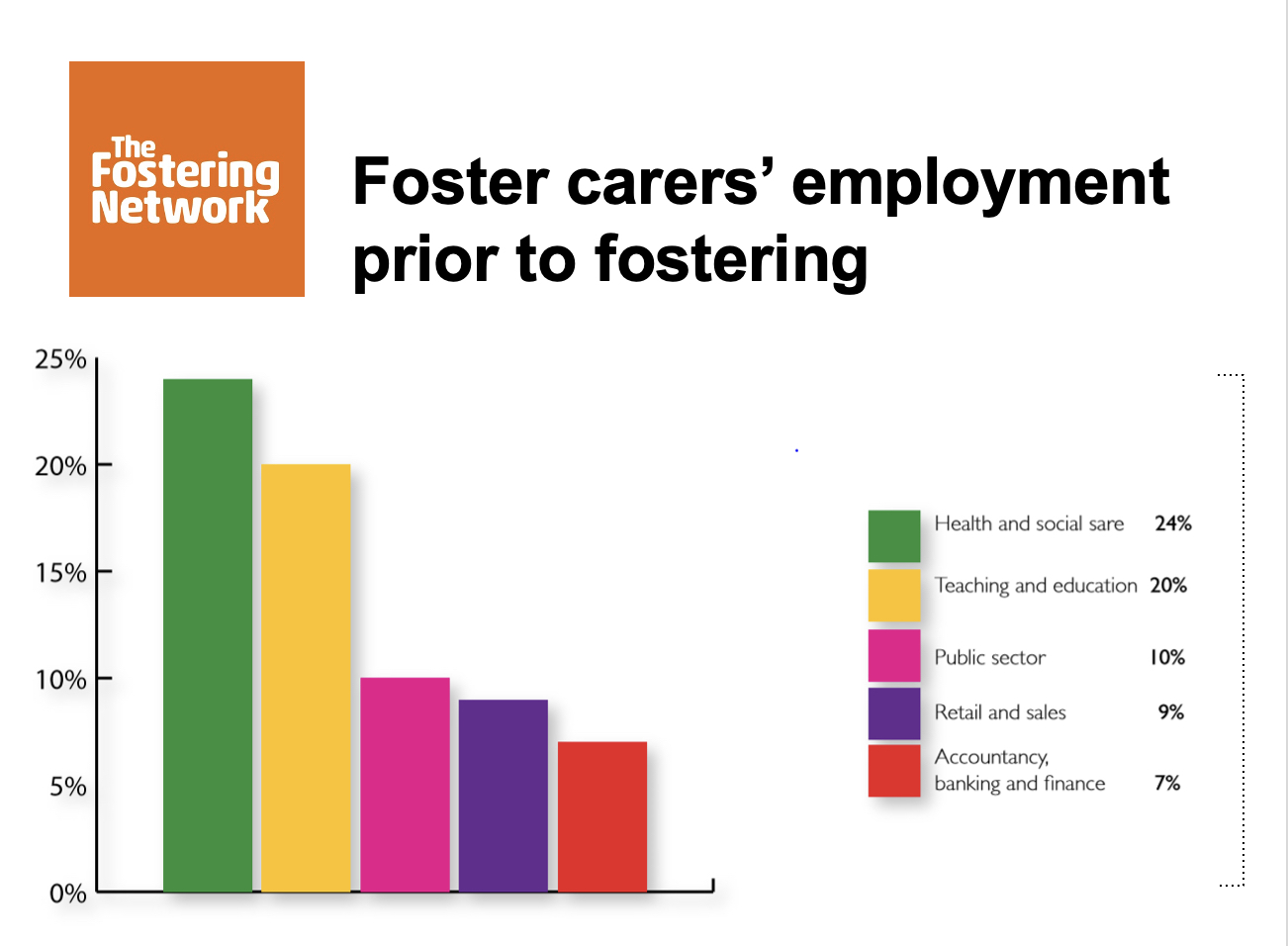Our Latest News
Parents sacrifice savings as 3 in 10 reduce their hours or have left work due to childcare costs
Parents sacrifice savings as 3 in 10 reduce their hours or have left work due to childcare costs
Phoenix Group, the UK’s largest long-term savings and retirement business, has found a quarter (25%) of adults with a child under five have reduced their working hours due to childcare costs, and a further 4% have left work entirely. This is resulting in longer-term consequences for parents’ retirement saving, as pension contributions decrease or are paused during time away from work.

The research was carried out ahead of the first phase of the government’s childcare support package coming into effect. From April 2024, working parents of two-year-olds will be eligible for 15 hours of free childcare support per week, over 38 weeks of the year.
Phoenix Insights, Phoenix Group’s longevity think tank, previously found that caring responsibilities often fall disproportionately on women, and limited access to
affordable childcare means many are left with no choice but to work part-time***. This was reflected in the research, which found that women with a child under five were significantly more likely than men to reduce their working hours because of childcare responsibilities (36% compared to 15%).
When asked about the extension of childcare support in England, 71% of working parents said they would increase their working hours if they could access the free childcare support. Of those parents currently out of work, 64% said they hoped to return if they could access the additional support.
Boosting income to cover living costs was the primary reason parents gave for increasing their working hours, followed by the ability to save and the desire to focus on career progression.
However, while parents are hopeful to increase their working hours, some report challenges with the availability of childcare, which limits their ability to do this. One in six adults with a child under five said they have found it difficult accessing formal childcare, for example through a nursery or child-minder.
Parents face saving sacrifice
The choice between work and childcare isn’t just around the trade-off between salary and childcare costs. Time out of work or reducing hours could also have consequences for long-term finances. Over a third (34%) of adults in the survey said the cost of childcare has stopped them from saving for their future.
Parents who reduce their working hours will earn less and contribute less into a workplace pension unless they increase their contribution level. There is also a risk that parents are excluded from workplace pension saving entirely if their salary is under the auto-enrolment earnings threshold, currently £10,000 – Phoenix Insights has found that women are three times more likely than men to be excluded from pensions auto enrolment for this reason***.
Patrick Thomson, head of research and policy at Phoenix Group’s longevity think tank Phoenix Insights, and co-chair of the ‘Families at Phoenix’ colleague network, comments: “Childcare costs can be crippling, and parents often face the dilemma of reducing working hours or dropping out of work entirely as they weigh up the benefits of working compared to paying childcare fees.
“Alongside the immediate impact on take home pay, it is also important to consider how this can affect future finances. Most people saving in a workplace pension pay a proportion of their salary to their retirement savings alongside an employer contribution, so any decrease in earnings from working less can lead to reduced pension contributions.
“Expanding the free childcare hours in England will offer some financial relief for working parents, and also support them to remain in work and continue to save if they are able. But it is crucial this goes hand-in-hand with measures designed to boost the availability of formal childcare. There is also an important role for employers to offer more flexible working arrangements for those with childcare responsibilities, particularly for those who feel that leaving work is their only option.
“Parents understandably want to provide for their children today, but that shouldn’t have to be at the cost of their own financial wellbeing in the future.”
How childcare is shared across the working week
The research also looked at who adults with a child under five rely on for childcare during the working week. The child’s other parent/partner was the most relied upon, but this was closely followed by nurseries and grandparents.
Violence against shopworkers doubles in the retail crime epidemic
Violence against shopworkers doubles in the retail crime epidemic
 Retail trade union Usdaw has recently announced shocking statistics from their annual survey of over 5,500 retail staff showing that 18% of shopworkers suffered a violent attack last year, compared to 8% in 2022. The increase in assaults comes during an epidemic of retail crime with official stats and reports from retailers showing significant increases in theft from shops. The survey also found the number of incidents has come down since the exceptionally high levels during the pandemic, but remain higher than pre-Covid levels in 2019. In the last twelve months (pre-pandemic levels, from the 2019 survey):
Retail trade union Usdaw has recently announced shocking statistics from their annual survey of over 5,500 retail staff showing that 18% of shopworkers suffered a violent attack last year, compared to 8% in 2022. The increase in assaults comes during an epidemic of retail crime with official stats and reports from retailers showing significant increases in theft from shops. The survey also found the number of incidents has come down since the exceptionally high levels during the pandemic, but remain higher than pre-Covid levels in 2019. In the last twelve months (pre-pandemic levels, from the 2019 survey):
- 70% (68%) have experienced verbal abuse
- 46% (43%) were threatened by a customer
- 18% (5%) were assaulted
Paddy Lillis – Usdaw General Secretary says: “No-one should feel afraid to go to work, but our evidence shows that too many retail workers are. It is shocking that nearly a fifth of our members working in retail are being assaulted for simply doing their job and serving the community. They provide an essential service and deserve our respect and the protection of the law.
“Violence and abuse is not an acceptable part of the job and much more needs to be done to protect shopworkers. The UK Government has repeatedly failed to act in the face of an epidemic of retail crime, rising theft from shops and assaults against retail workers. It is disappointing that they have no measures in their legislative programme to tackle this issue. We support opposition attempts to amend the Government’s Criminal Justice Bill, so that the law is strengthened to protect shopworkers from violence, threats and abuse.
“A protection of shopworkers law is also supported by many retailers. It already exists in Scotland and has secured over 500 convictions. We also need more neighbourhood police with patrols in town centres, respect orders to ban repeat offenders and an end to the £200 threshold for investigating and prosecuting shop theft. Most of all, we ask the public to support our campaign by respecting shopworkers.”
Women less likely than men to believe they can get into university
Women less likely than men to believe they can get into university
Women are more pessimistic than men about their chances of getting accepted into university, reveals new research by the University of Cologne. The study, conducted by Professor Marita Jacob, in collaboration with Melinda Erdmann and Marcel Helbig, Berlin Social Science Center, investigated why female upper secondary school students may refrain from enrolment into college or university.
 They found women are more pessimistic than men about achieving their aspirations of going into higher education, despite the fact they are equally interested in pursuing higher education as their male counterparts – women even express higher aspirations for college enrolment than men.
They found women are more pessimistic than men about achieving their aspirations of going into higher education, despite the fact they are equally interested in pursuing higher education as their male counterparts – women even express higher aspirations for college enrolment than men.
The researchers say that while factors such as probability of success and perceived cost impact both genders, young women are also affected by formal restrictions limiting entry to their preferred fields of study. For example, there are high entry requirements for medicine, psychology or law and many women often don’t believe they will achieve the correct grades to be accepted.
“The finding that women do not realise their college aspirations is particularly noteworthy, as women on average achieve higher grades than men, giving them a considerable advantage in the competition for scarce study places. The first ‘leak’ in the pipeline for academic careers in Germany therefore occurs even before actual enrolment”.
In order to enable more talented young women to realise their academic ambitions and to counteract the phenomenon of “lost talents”, the researchers particularly advise forming initiatives such as guidance counselling to encourage and support young women and men in pursuing their goals.
Understanding and supporting employees who foster
Understanding and Supporting Employees who Foster

The Fostering Network, the leading charity for foster care in the UK, estimates that 1 in 800 employees combine their work with being a foster carer, offering vital support and love to ‘looked after’ children.
Scotland (and across the UK) has got a real challenge around the lack of foster carers. The Fostering Friendly Employers (FFE) offer helps employers play a part in both encouraging and supporting employees who could be, or already are foster carers, as well as demonstrating wider organisation social values. 40% of the UK’s foster carers manage their caring responsibilities alongside other employment. Seeing more employees from within Scotland’s corporate sector engaging, will help play a part in building both numbers and diversity.

The Fostering Friendly employers scheme supports companies to understand foster carers’ needs and responsibilities and put in place a simple policy to ensure they are met. The charity can help promote companies’ accreditation and raise awareness of foster care among staff teams.
Employees are hugely appreciative of the scheme: “I return to work inspired and motivated; even more determined to make a difference, because I’ve supported a young person through a difficult situation. Foster caring spurs you on in every aspect of your life.”
The scheme is growing fast, with over 160 employers signed up including John Lewis, Nationwide and Santander. It also has the full support of the Scottish Government, not least because foster families care for over 4,000 children in Scotland and hundreds more are needed every year.
Contact the charity at: FosteringFriendly@fostering.net to find out how you can benefit.
OUT TODAY – March 2024 Issue of Hr NETWORK Magazine
OUT TODAY – March 2024 Issue of Hr NETWORK Magazine
Hr NETWORK is ‘The Hub’ of Scottish HR and people development with an ‘Access All Areas’ pass to Scotland’s most influential human resource and business professionals across all sectors in Scotland. As well as readers from the world of HR, the magazine is also extremely popular within SME (Small and Medium Enterprise) organisations and is very useful for line managers, heads of department, senior management, managing directors and other professionals throughout the country who play a vital role in the development of people within all industry sectors in Scotland. Published bi-monthly, Hr NETWORK Magazine is informative and a ‘must have’ for its readers, and brings with it in every issue, great opportunities and benefits for advertisers and sponsors too.
Hr NETWORK Magazine March 2024
Future Leaders: Recognising their unhatched potential
Modern leaders must be adaptable, innovative and collaborative to add organisational value. But how can they shape their people policies so they’re fit for the future? Andy Moore discovers how they can unhatch their potential and achieve their goals.
Also in the latest issue:
- The regular sections of the magazine include: Stats, EXTRA and The Bookshop
- The ‘Insights’ section features first class comment from those in the know on a range of subjects including: Financial Insecurity, Hybrid Working, Heart-centred Leadership, Menopause at Work
Hr NETWORK National Awards 2024: NOMINATIONS OPEN TODAY!!
NOMINATIONS ARE NOW OPEN!!
Nominations for this years Hr NETWORK National Awards 2024 have opened TODAY and this is your chance to RECOGNISE, ACKNOWLEDGE and REWARD your HR Champions of 2024.
Award Categories for 2024
With 18 awards categories in total, which are FREE to enter, the Awards will determine the top performing HR people, teams, projects and organisations in the Scottish people development and management industry. The ‘Nominations Intention’ scheme captures early interest from those intending to nominate and provides support and ongoing updates on all the categories during the nominations process, running from 1st March to 31st May 2024.
Table sales for this year’s awards will be in extremely high demand and organisations wishing to host a table of 10, are strongly advised to secure their table as soon as possible. The winners will be announced at the annual Hr NETWORK Awards Gala Dinner taking place at the hugely impressive Glasgow Hilton on Thursday 14th November 2024.
The Awards categories are judged in two sections, People categories and Project categories:
People
These categories focus on individuals (except for the HR Team category). Judges are looking for exceptional individuals who MUST demonstrate that they are at the top in their respective role.
Projects
These categories focus on projects/specific initiatives that have had a measurable impact in the organisation.
To register your interest in the 2024 nominations process, please email the awards planning team: awards@hrnetworkscotland.co.uk
For information relating to the Gala Dinner which takes place at the Hilton Glasgow on Thursday 10th November 2022, including Table Hosting and Sponsorship, please contact the Awards Planning Team on Tel: 0131 625 3267 or Email: awards@hrnetworkscotland.co.uk









